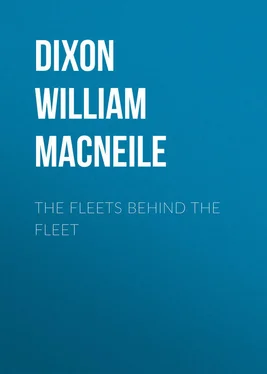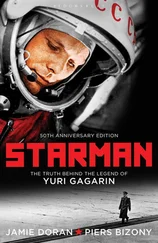William Dixon - The Fleets Behind the Fleet
Здесь есть возможность читать онлайн «William Dixon - The Fleets Behind the Fleet» — ознакомительный отрывок электронной книги совершенно бесплатно, а после прочтения отрывка купить полную версию. В некоторых случаях можно слушать аудио, скачать через торрент в формате fb2 и присутствует краткое содержание. Жанр: foreign_antique, foreign_prose, на английском языке. Описание произведения, (предисловие) а так же отзывы посетителей доступны на портале библиотеки ЛибКат.
- Название:The Fleets Behind the Fleet
- Автор:
- Жанр:
- Год:неизвестен
- ISBN:нет данных
- Рейтинг книги:3 / 5. Голосов: 1
-
Избранное:Добавить в избранное
- Отзывы:
-
Ваша оценка:
- 60
- 1
- 2
- 3
- 4
- 5
The Fleets Behind the Fleet: краткое содержание, описание и аннотация
Предлагаем к чтению аннотацию, описание, краткое содержание или предисловие (зависит от того, что написал сам автор книги «The Fleets Behind the Fleet»). Если вы не нашли необходимую информацию о книге — напишите в комментариях, мы постараемся отыскать её.
The Fleets Behind the Fleet — читать онлайн ознакомительный отрывок
Ниже представлен текст книги, разбитый по страницам. Система сохранения места последней прочитанной страницы, позволяет с удобством читать онлайн бесплатно книгу «The Fleets Behind the Fleet», без необходимости каждый раз заново искать на чём Вы остановились. Поставьте закладку, и сможете в любой момент перейти на страницу, на которой закончили чтение.
Интервал:
Закладка:
None but a great maritime people, however powerful its fighting fleets, could have faced or upheld for a week the gigantic undertaking. We speak of an empire of thirteen million square miles, of four hundred millions of inhabitants. We should speak of it as an empire of ships and sailors, an empire of tonnage – 20 millions of it – carrying the weight of half the world's goods, a voyaging empire, in everlasting motion on the seas, that in days of peace serves every race and country —
To give the poles the produce of the sun,
And knit the unsocial climates into one.
that unites in a close-wrought texture the whole fabric of civilisation, links island to island, continent to continent; a prodigious network of travel. The empire of ships, that has brought the East to meet the West, sought out the far and foreign lands; enabled China and India and the Isles to interchange ideas and gifts with Europe, is not the fleet of battleships but that other which, in times of peace, extended in a fashion no other instrument has ever rivalled, and enriched beyond arithmetic the intercourse and resources of mankind.
THE KEY-STONE OF THE ARCH
These are the men who sailed with Drake,
Masters and mates and crew:
These are the men, and the ways they take
Are the old ways through and through;
These are the men he knew.
The communications of the Great Alliance – it is their point of vulnerability – are sea communications, and if that key-stone slips
"Rome in Tiber melts, and the wide arch
Of the ranged Empire falls."
From the first the Central Powers held the splendid advantage of the interior and shorter lines. Theirs were the spokes of the wheel, the spokes along which run the railways. On the circumference of the wheel held by the Alliance, on the rim of ocean, went and came all things – men and the interminable machinery of war. The Allied and far longer lines therefore on the arc of an immense circle traverse the sea from Archangel to Gibraltar; from Gibraltar to Suez or the Cape; from Suez to Colombo; from Colombo to Melbourne; from Melbourne to Vladivostok. Nothing less was here required than a railroad belting the globe, whose rolling stock was ships. And the problem faced by Britain, as the great maritime partner in the alliance of 1913, remains essentially a problem of sea transport, and transport on a scale wholly without parallel in the world's history. Since Britain herself had never dreamt of raising an army of five million men, provision for the bridge of boats required for such numbers, with all their battle apparatus, had found no place in her plans. But she had ships and sailors.
"We have just returned here after making three trips with troops from Southampton to France," wrote an officer. "It was really marvellous work. Southampton was full of troop ships and like clock work they were handled. Every ship had a number allotted to her and a special signal. One ship would arrive alongside, fill up her holds and decks, and, in less than half-an-hour, she was away again. As soon as they got one vessel off her berth, up would go the signal for another steamer to take her place, and so the work went on. Ship followed ship off the port like a line of vessels manœuvring. Orders came for 94 to go alongside. Up went the signal, and in less time than it takes one to write, we were following the rest."
The ferrying of vast human and material cargoes across the Channel – an undertaking one might think serious enough – was in fact a trifle compared with the undertaking as a whole; for, since the recruiting areas for Britain's forces lay in every latitude, there fell within it the transference of great bodies of troops from Australia and New Zealand across 10,000 miles of ocean, from India across 6,000 miles; from Canada, more than 2,000 miles away, and not, be it remembered, a transference to Britain or France only but to Egypt, the Persian Gulf, the Dardanelles, Salonika; a transference continuous, unending, processional.
"It is not only a war with Germany," said Sir Edward Carson. "You have a war – a naval war – going on over the whole of the seas – war in the Channel, war in the Atlantic, war in the Pacific, war in the Mediterranean, war round Egypt, war in the Adriatic, war in Mesopotamia, war at Salonika, and day by day the Navy is called upon to supply the material for carrying on all these wars. Did anybody ever contemplate a war of that kind? When I mention one figure to you that at the commencement of the war we had something like 150 small vessels for patrol work, and now we have something like 3,000, you will see the gigantic feat that has been accomplished by the Navy. In all these theatres of war we have to provide patrols, convoys, mine-sweepers, mine-layers, air service, mine-carriers, fleet messengers."
Owing to the demands of the Royal Navy upon the shipyards additions to mercantile tonnage were out of the question. With the ordinary resources of peace the vast unapprehended responsibilities of war had to be met. There was no other way. Besides the armies and the great guns, the various belligerent zones called for hundreds of miles of railroad with engines and rolling stock complete; horses and mules and their fodder; cargoes of wood for trench making; river boats in sections for the Persian Gulf; motor lorries, literally in thousands; material and food for whole moving populations and their multiform activities.
"During the last five or six weeks," said Sir William Robertson on May 12, "we have expended no less than 200,000 tons of munitions in France alone, and we have taken out some 50,000 tons of stones for making and mending roads." "Everything has been taken ashore," wrote an officer on transport service in the East, "by lighters and rafts. The major part of our cargo is railway material, cattle trucks, ambulance vans, oxen, horses, mules, fodder, ammunition and troops. We have a mixture of everything necessary for warfare from 'a needle to an elephant.'"
Think also of the coal, carried overseas to the Allies; nitrates shipped from South, munitions from North America; ore from Spain and the Mediterranean; and contemplate the dizzy shuffling on the high seas of these mighty freights. All the while the needs of peace remained inexorable. The sugar and the wheat, the cotton, coffee and all the other requirements of the home population of these islands had still unceasingly to be provided. The mind refuses to calculate in these dimensions; our foot-rules will not measure them. Let us however write down the unthinkable figures. Eight millions of men; ten million tons of supplies and explosives; over a million sick and wounded; over a million horses and mules; fifty million gallons of petrol alone. These of course are merely the additional undertakings of war. To complete the picture one has to include ordinary imports and exports, such trifles as 100 million hundredweights of wheat; seven million tons of iron ore; 21 million centals of cotton – the figures for 1916. For the same 12 months the value of the home products exported was 500 millions. British ships have been busy in these thundering years!
But the Allies, you will say, assisted. France had 360 ocean-going vessels; Italy about the same number; Russia 174; Belgium 67. No doubt, yet these nations were nevertheless borrowers, not lenders. Their ships were far from sufficient for their own necessities, and to France, Britain despite her own searching requirements, lent about 600 ships, to Italy about 400, a sixth of her own far from adequate supply. "Without our Mercantile Marine the Navy – and indeed – the nation – could not exist," said Admiral Jellicoe. One perceives the truth of it. But the tale does not end there. About a hundred merchant ships were commissioned as auxiliary cruisers, and armed with guns like the Carmania took their share in the fighting. The Empress of Japan captured the collier Exford , the Macedonia rounded up the transports accompanying Von Spee, the Orama was in at the death of Dresden . Colliers too are needed for the Royal Navy; supply and repair ships; auxiliaries for the fighting flotillas and the great blockade patrol. Extending from the Shetlands to the coast of Greenland and the Arctic ice a wide net had to be flung whose meshes were British ships. And yet again in the narrow seas and in the defiles of the trade routes, day in day out, the British trawlers – fleets of them – swept for the German mines.
Читать дальшеИнтервал:
Закладка:
Похожие книги на «The Fleets Behind the Fleet»
Представляем Вашему вниманию похожие книги на «The Fleets Behind the Fleet» списком для выбора. Мы отобрали схожую по названию и смыслу литературу в надежде предоставить читателям больше вариантов отыскать новые, интересные, ещё непрочитанные произведения.
Обсуждение, отзывы о книге «The Fleets Behind the Fleet» и просто собственные мнения читателей. Оставьте ваши комментарии, напишите, что Вы думаете о произведении, его смысле или главных героях. Укажите что конкретно понравилось, а что нет, и почему Вы так считаете.












